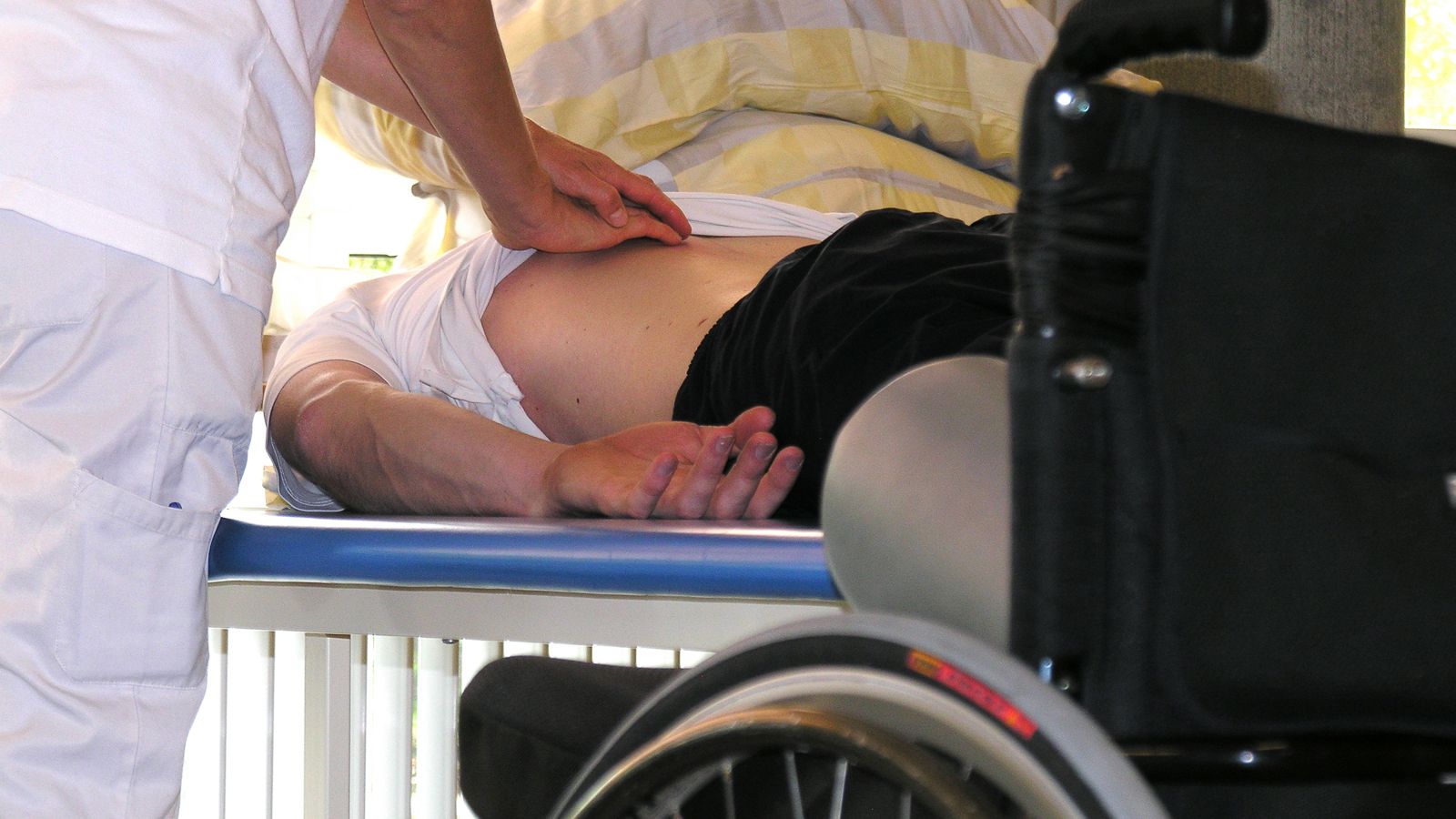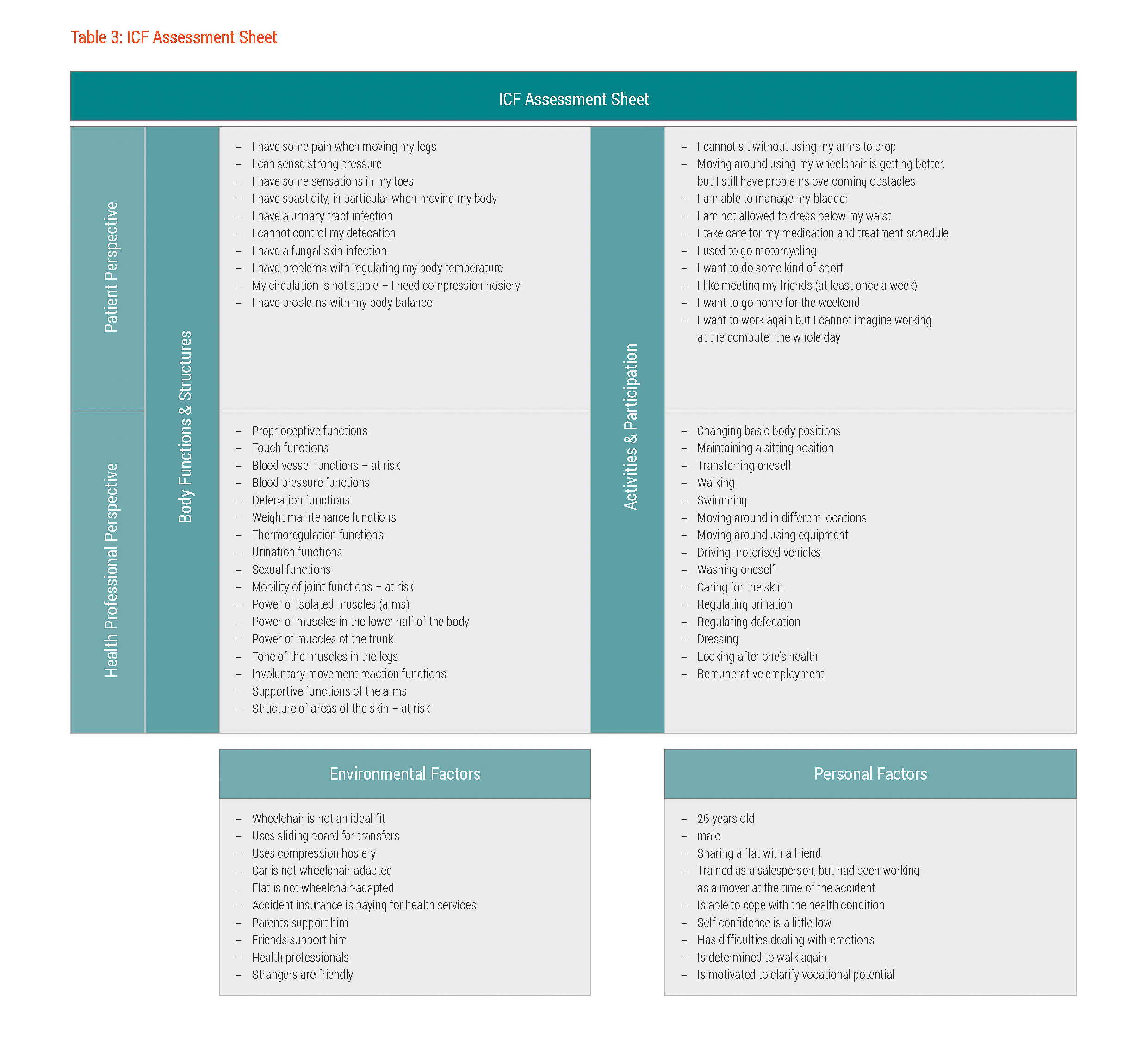Assessment

The results of the assessment were documented in the ICF Assessment Sheet, a comprehensive overview of Martin's functioning state according to the ICF components of body functions and structures, activities and participation, environmental and personal factors. Martin’s perceived problems and needs in these components were nearly all confirmed by the results of the assessment performed by the health professionals in Martin's rehabilitation team.
Many of these problems and needs are common among persons living with complete paraplegia. Given Martin's complete loss of motor and touch functions below the level of injury, he was confronted with bladder problems and difficulties with washing and dressing. At the time of assessment, Martin required the assistance of a nurse to wash and dress as well as with bladder management i.e. catheterization. In addition, specific medical issues needed to be addressed – a fungal skin infection, a urinary tract infection, poor peripheral circulation resulting in problems of blood pressure maintenance, and pain in his back. Moreover, Martin experienced difficulties with body balance, sitting without the supportive use of arms due to his loss of muscle power functions in the trunk, mobility using a wheelchair specifically in moving around obstacles.

Table 3: ICF Assessment Sheet
Interrelated Factors Relevant for Work Participation
With regard to Martin's perspective of his vocational future, he indicated that we would like to work again. However, he made it clear that he would prefer a job that did not require him to work on a computer the whole day. Martin's training as a salesperson and prior work experience as a mover were documented on the ICF Assessment Sheet as personal factors. Another VR-relevant personal factor was Martin's intention to clarify his vocational potential.
During the assessment phase, the rehabilitation team also acknowledged the importance of addressing work participation in Martin's rehabilitation. VR-relevant issues that were documented by the rehabilitation team focused on body functions, mobility, self-care, and in looking after one’s health. These issues also impacted on Martin’s level of independence. His need for assistance in executing certain activities of daily living presented some challenges to attaining both independence and employment. On the other hand, Martin’s enthusiasm, positive outlook on life and optimistic attitude towards the challenges he faced proved to be facilitative of his efforts to return to work.
I feel like I have a very positive attitude towards all of this. Maybe because I see this as temporary, like a disease that will last only a few years. I still believe that I’ll walk again…maybe it will take five years, but my will is strong, my family’s will as well. This really empowers me to reach beyond my limits and to try to learn as fast as possible.
Martin
The assessment results and the observations made during the assessment phase offered a foundation for deciding on the intervention targets and setting the rehabilitation goals, all of which were documented on the ICF Categorical Profile.